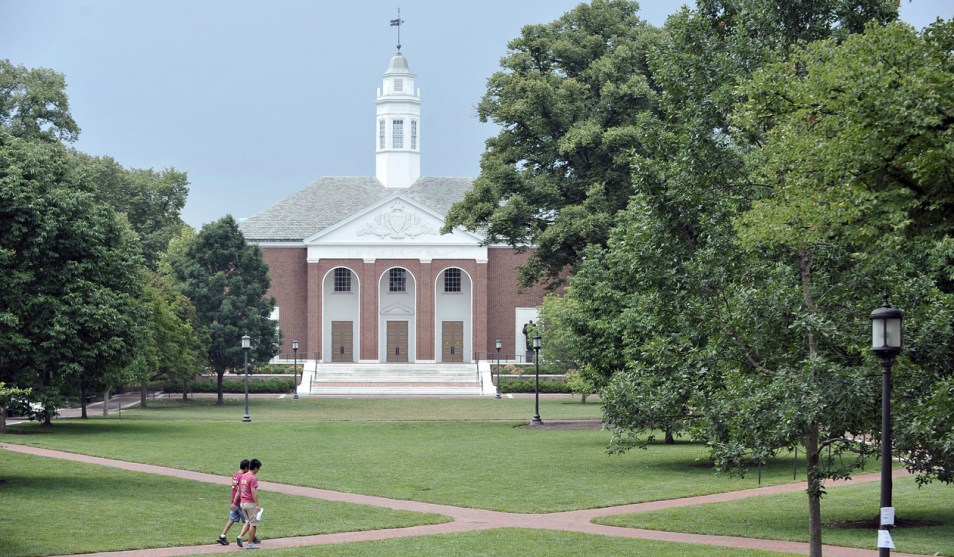
Kim Hairston/Baltimore Sun/TNS via ZUMA
Just how stifling is it on university campuses these days? What with all the trigger warnings, safe spaces, heckler’s vetoes, diversity worship, and humorless lefties, it’s a wonder there’s any time left to teach classes.
But how bad is it really? The Martin Center posts stories about ill-treated conservatives periodically, and these are picked up by National Review, where I see them. But are these stories the tip of a massive iceberg of intolerance on American campuses? Or is a weekly outrage pretty much all there is, representing a minuscule fraction of the 1.5 million professors currently teaching on university campuses?
I don’t really have any way of knowing, and I usually just scan the outrages and move on. Today, though, I was intrigued. Here is George Leef:
Leftists are notorious for their lack of a sense of humor….One faculty member who recently discovered that is Professor Trent Bertrand of Johns Hopkins. Make that formerly of Johns Hopkins. A joke he told in his international-economics course earlier this year led to complaints by three students that he had created a “hostile learning environment” for them. That’s bad enough, but the university’s overreaction was mind-boggling.
That sounds kind of grim. A single offhand witticism that went a little awry and the guy is toast. What on earth did he say? Here’s the joke:
An American loses his job due to his work being off-shored. He is very depressed and calls a mental health hot line. He gets a call center in Pakistan where the call center employee asks, “What seems to be the problem?” The American responds that he has lost his job due to the work being sent overseas and states, “I am really depressed and actually suicidal.” The call center employee says, “Great. Can you drive a truck?”
What a knee slapper! This is from Bertrand himself, so we can be sure that his enemies aren’t exaggerating what he said. I conclude two things:
- Bertrand was a contract instructor with three classes left before the end of the semester. Maybe they should have just let him finish up instead of escorting him off campus.
- Bertrand is an asshole.
This was not some offhand witticism. This was a carefully conceived joke whose sole purpose was to cast Muslims as suicide bombers. Bertrand told it with malice aforethought even though it really has nothing to do with offshoring.¹ Nor is this a matter of contention. Bertrand happily admits that he regaled his class with this jest.
Without knowing more, I won’t weigh in on whether Bertrand should have been escorted off campus by security. But if this is the kind of thing National Review is defending, it makes me think they’re a little short on genuine campus outrages.
¹If you’re unclear about this, replace “offshored” with “laid off thanks to Obamacare.” It works just as well.

















